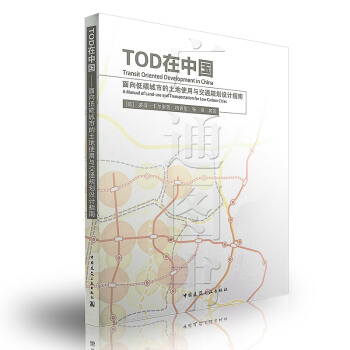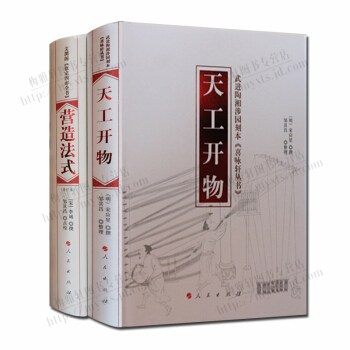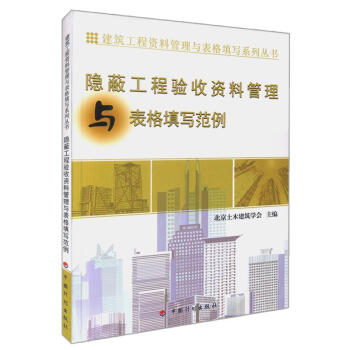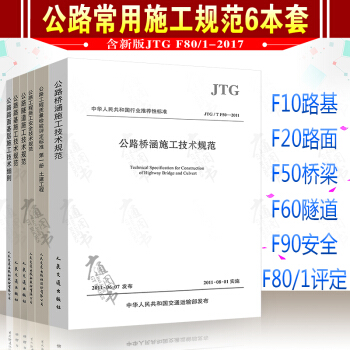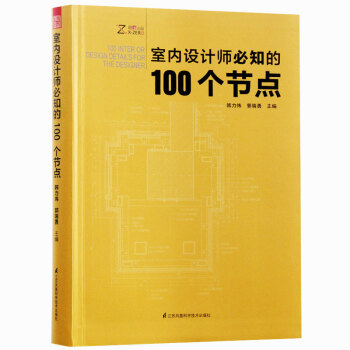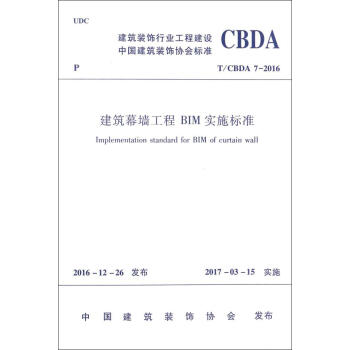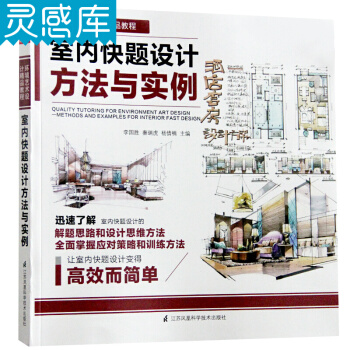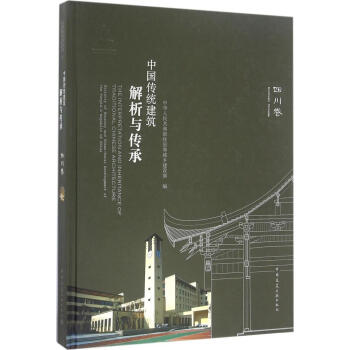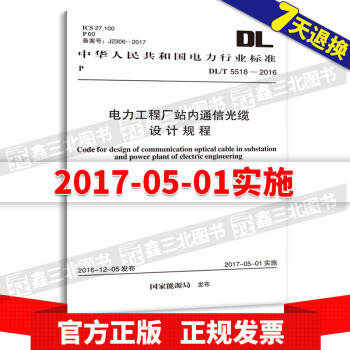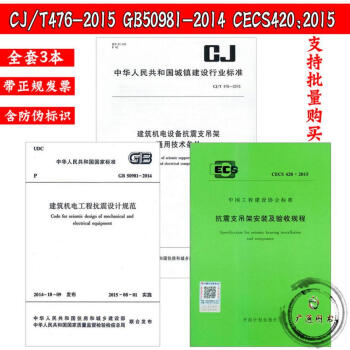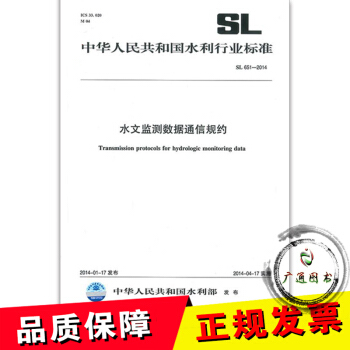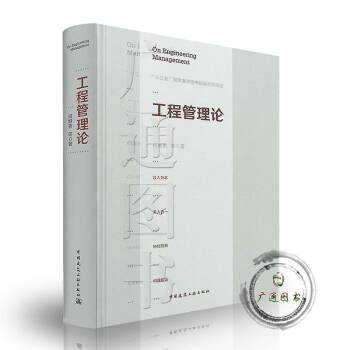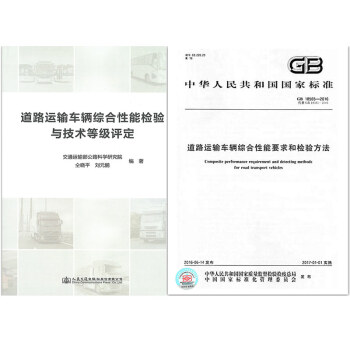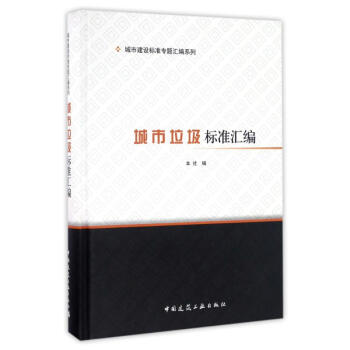

具体描述
内容简介
暂无用户评价
作为一名在城市规划领域摸爬滚打多年的从业者,我始终认为,城市的健康发展离不开一套科学、完善、可执行的标准体系。《城市垃圾标准汇编》这个名字,听起来就像是为我们这些一线工作者量身定做的一本“宝典”。我一直在寻找一本能够系统梳理和整合现有城市垃圾处理相关标准的书籍,以便于我们在项目规划、方案设计以及政策制定过程中,能够有据可依,避免出现标准缺失或相互矛盾的情况。 这本书,我期望它能成为一个集大成的存在,将国家层面、地方层面,甚至是一些国际上被广泛认可的先进标准,都一一收录其中。这其中,我尤其看重的是那些具有可操作性的技术标准,比如在垃圾分类方面,如何科学、细致地界定不同类别的垃圾,如何制定切实可行的收集和运输规范,以确保分类的有效性和延续性。 同时,对于垃圾处理的各种工艺,如填埋场的设计规范、焚烧厂的排放标准、堆肥厂的工艺参数等,我都希望能在这本书中找到详细的阐述。我想了解,在不同的地理条件、经济发展水平以及人口密度下,哪些处理技术是最优选择,以及这些选择背后的科学依据是什么。这本书,或许能为我们提供一个清晰的决策框架。 Furthermore, my professional interest extends to the regulatory and policy framework surrounding urban waste. I anticipate that this book will provide a comprehensive overview of the legal stipulations that govern waste generation, collection, transportation, and disposal. This includes understanding the national laws, local ordinances, and potentially international agreements that set the benchmarks for responsible waste management. I am keen to see how these regulations are structured, how they assign responsibilities to various stakeholders, and what mechanisms are in place for enforcement and accountability. The technical specifications for waste treatment facilities are another area of great importance to me. This would encompass details on the design and operational parameters for landfills, incinerators, composting plants, and other processing facilities, ensuring they meet environmental protection standards, such as emission limits for air and water pollutants, and also adhere to safety requirements for workers and the surrounding communities. I expect to find information on the optimal technologies for treating different types of waste and the criteria for selecting the most appropriate methods. In addition, the book's exploration of waste reduction and resource recovery strategies is something I highly value. This might involve outlining standards for promoting source reduction, encouraging reuse, and establishing guidelines for the recycling and reprocessing of various waste streams, such as plastics, paper, glass, and metals. Understanding the economic incentives and policy levers that facilitate a circular economy approach to waste management would be incredibly beneficial. The practical aspects of waste management logistics are also a key focus. I hope the book addresses standards related to waste collection routes, vehicle specifications, frequency of collection, and the design and management of transfer stations. Furthermore, I am interested in learning about the requirements for waste storage, handling, and transportation to minimize the risk of spillage, odor, and public health hazards. The environmental impact assessment of waste management operations is another critical area. I anticipate that the book will detail the standards and methodologies for evaluating the environmental consequences of different waste management practices, including their effects on air quality, water resources, soil, and biodiversity. This would enable us to make informed decisions that minimize negative environmental footprints. The social implications of urban waste management are also of concern. I hope the book touches upon standards related to public health, worker safety, and community engagement. This could include guidelines for educational programs to promote waste segregation, protocols for protecting the health of waste workers, and mechanisms for addressing public concerns and fostering community participation in waste management initiatives. From an international perspective, I would be interested to see how the book compares urban waste standards across different countries and regions. This could highlight global best practices, emerging trends, and innovative solutions that can be adapted and implemented locally. Such a comparative analysis could provide valuable insights for refining our own standards and policies. The economic viability of urban waste management systems is also a crucial consideration. I would look for discussions on financing models, cost-benefit analyses of different treatment technologies, and the role of market mechanisms in promoting waste reduction and recycling. Understanding how to create economically sustainable waste management systems is essential for long-term success. Ultimately, I envision this book as an indispensable reference guide that empowers urban planners, policymakers, and waste management professionals to make more informed decisions, implement effective strategies, and contribute to the development of sustainable and environmentally responsible cities.
评分作为一名对城市生活细节有着敏锐观察力的普通市民,我常常思考,那些被我们称为“垃圾”的东西,究竟是如何在城市这张巨大的画布上,被有序地描绘、处理,并最终消失或重生的。《城市垃圾标准汇编》这本书,对我而言,就像是一本揭秘城市“另一面”的指南,它承诺要为我解答关于垃圾处理的一切疑问。 我非常期待书中能够清晰地界定“垃圾”的范畴,并进一步细化不同类型垃圾的标准。例如,当我们在谈论“可回收垃圾”时,具体指的是哪些物品?它们的材质、形状、甚至洁净程度,是否都有具体的标准来衡量?我希望书中能用简单易懂的方式,让我理解这些细微之处,从而在日常生活中做到精准分类,不给后续的处理环节增加不必要的负担。 同时,我也对垃圾的“旅程”充满了好奇。从我们手中丢弃,到被收集、运输,再到最终的处理,这中间的每一个环节,是否都有严格的“通行证”和“安全守则”?书中是否会详细介绍垃圾收集点的设置标准,垃圾运输车辆的技术要求,以及转运站的操作规范?我希望了解,整个过程是如何被层层把关,以确保效率和安全。 Furthermore, the technical standards for waste treatment and disposal are of paramount importance to me. I am eager to understand the specific requirements for various treatment methods, such as incineration, landfilling, and composting. This would include details on emission control standards, operational safety protocols, and the environmental monitoring required for these facilities. Ensuring that these processes do not negatively impact our air, water, and soil is crucial. The book's potential to elaborate on the principles of waste reduction and resource recovery is also highly anticipated. I believe that preventing waste generation in the first place is a critical aspect of sustainable urban living. I hope it outlines standards and strategies for promoting source reduction, encouraging reuse, and enhancing the efficiency of recycling processes. From a regulatory standpoint, I expect the book to provide a comprehensive overview of the legal framework governing urban waste management. This would involve understanding the roles and responsibilities of different stakeholders, including government agencies, private companies, and citizens, as well as the enforcement mechanisms in place to ensure compliance with established standards. The aspect of hazardous waste management is particularly concerning. I hope the book clearly defines what constitutes hazardous waste and outlines the specific standards for its safe handling, storage, transportation, and disposal. Protecting public health and the environment from the risks associated with these materials is of utmost importance. Moreover, I am interested in the standards related to the design and operation of waste transfer stations and materials recovery facilities. Understanding how these facilities are managed to maximize efficiency and minimize environmental impact would be highly informative. The book's potential to include case studies or examples of best practices from different cities would also be immensely valuable. Learning from successful implementation of waste management standards in other urban contexts can provide inspiration and practical lessons for our own city. The economic implications of waste management are also a factor. I hope the book sheds light on how waste management services are funded, the costs associated with different treatment technologies, and the potential for creating economic value from waste through recycling and resource recovery. From a future-oriented perspective, I am curious about how the book addresses emerging trends and technologies in waste management. This could include discussions on smart waste management systems, waste-to-energy innovations, and strategies for dealing with complex waste streams like e-waste. Ultimately, I envision this book as a comprehensive and accessible resource that demystifies the complexities of urban waste management standards, empowering me and other citizens to become more informed and active participants in building a cleaner, healthier, and more sustainable city.
评分我是一个热爱城市生活,同时也对环境保护深切关注的普通市民。《城市垃圾标准汇编》这本书,在我看来,就好比是一本“城市脉搏”的解读手册,它试图将我们城市日常运转中那些看似零散却又至关重要的“垃圾”环节,通过一套系统化的标准,呈现出来。我希望通过阅读这本书,能够更深入地理解我们所居住的城市是如何运转的,以及我们在其中扮演着怎样的角色。 我尤其对书中关于“何为合格的垃圾”以及“如何正确地处理垃圾”的标准感到好奇。在生活中,我们每天都在产生垃圾,但对于不同类型垃圾的准确界定,以及它们各自应该遵循的处理流程,我总感觉有些模糊。这本书,我期待它能够提供一套清晰、明确、可操作的标准,例如,对于厨余垃圾,是否有特定的含水率要求?对于可回收垃圾,其纯度需要达到何种程度才能被有效回收? 此外,我对垃圾处理过程中所涉及到的技术和设备,也有着浓厚的兴趣。书中是否会详细介绍各种垃圾处理技术,例如垃圾焚烧厂在排放标准上的具体要求,填埋场在选址、建设和运行上的规范,以及堆肥厂在发酵过程中的关键参数?我希望能够了解到,这些技术是如何在保障环境安全和资源效益之间取得平衡的。 Moreover, I am eager to understand the regulatory framework that governs the entire lifecycle of urban waste. This includes grasping the legal basis for waste management policies, the responsibilities assigned to different entities such as households, businesses, and waste management operators, and the enforcement mechanisms that ensure compliance. I believe a clear understanding of these regulations is crucial for fostering a sense of collective responsibility and accountability in managing our urban waste. The book's potential to shed light on the economic aspects of waste management is also highly anticipated. I hope it provides insights into the cost structures associated with different waste management options, the economics of recycling and resource recovery, and the potential for market development in the waste sector. Understanding how financial incentives and disincentives can drive behavioral change towards more sustainable waste practices would be particularly enlightening. From a public health perspective, I anticipate that the book will address the standards aimed at protecting the well-being of both waste management workers and the general public. This could encompass guidelines on occupational safety, hygiene, and the prevention of disease transmission, as well as measures to mitigate any potential adverse health impacts on communities living near waste treatment facilities. The role of technological innovation in urban waste management is another area I am keen to explore. I hope the book discusses emerging technologies and their associated standards, such as smart waste collection systems, advanced sorting technologies, and novel methods for waste-to-energy conversion. Understanding these advancements would offer a glimpse into the future of waste management. Furthermore, I am interested in how the book addresses the issue of waste reduction at the source. Are there standards and guidelines that encourage businesses and individuals to minimize waste generation through practices like product redesign, sustainable packaging, and conscious consumption? This proactive approach to waste management is something I believe is critical for long-term sustainability. The book's potential to serve as a practical guide for improving existing waste management systems is also something I highly value. I hope it offers actionable recommendations and best practices that can be adopted by local authorities and waste management companies to enhance efficiency, reduce environmental impact, and promote resource recovery. The comparative aspect, if included, would be particularly beneficial. Understanding how different cities or countries manage their urban waste and the standards they employ could provide valuable benchmarks and inspire innovative solutions. Ultimately, I hope this compilation of urban waste standards serves as a comprehensive and accessible resource that empowers all stakeholders – from policymakers to ordinary citizens – to work collaboratively towards cleaner, healthier, and more sustainable urban environments.
评分这本书的到来,着实让我有些惊喜,也有些许的期待。作为一个常年关注城市发展和环境保护的普通市民,我一直深切地感受到垃圾处理在现代城市生活中扮演着举足轻重的角色。它不仅仅是关于“丢弃”的问题,更关乎资源的可持续利用,关乎城市的面貌,甚至关乎我们下一代的生存环境。我一直希望能有一本能够系统性地梳理和讲解城市垃圾相关标准的书籍,让我能够从一个更宏观、更专业的视角去理解这个看似平凡却又极其复杂的议题。 《城市垃圾标准汇编》,这个书名本身就充满了权威感和信息量。我脑海中浮现出的,是厚重的一本书,里面承载着国家、地方乃至于国际上关于垃圾分类、收集、运输、处理、回收利用等方方面面的法规、政策、技术标准和操作指南。我期待它能像一本字典,为我解答关于垃圾处理的种种疑问;又像一本百科全书,为我揭示城市垃圾背后蕴含的科学原理和管理智慧。 我想象中的内容,会包含不同种类的垃圾,例如厨余垃圾、可回收物、有害垃圾、其他垃圾等,各自有明确的定义、分类标准和处理要求。同时,书中是否会详细介绍不同处理技术,比如填埋、焚烧、堆肥、厌氧消化等,以及这些技术在不同城市、不同规模下的适用性、优缺点和相关的环保技术指标?我尤其关心在当前倡导循环经济的背景下,书中对垃圾资源化利用的标准化方面会做怎样的阐述?例如,废旧塑料的回收利用标准,废旧电子产品的拆解和再制造标准,建筑垃圾的再生利用标准等等,这些都是我非常感兴趣且希望获得详细解答的方面。 Furthermore, I am eager to explore the regulatory framework that governs urban waste management. This includes understanding the legislative basis for waste reduction, the legal responsibilities of different stakeholders – from individual citizens to waste management companies and government agencies – and the penalties for non-compliance. I hope the book delves into the intricate details of how these standards are enforced, the role of monitoring and auditing, and the mechanisms for public participation and grievance redressal. The practical implementation of these standards is also a critical aspect that I look forward to learning about. How are collection routes optimized to minimize environmental impact and operational costs? What are the safety protocols for waste handlers and the public? What are the technical specifications for waste treatment facilities to ensure they meet emission standards and minimize secondary pollution? I'm particularly interested in case studies or examples of successful implementation in different cities, highlighting best practices and lessons learned. I also anticipate that the book will address the economic dimensions of urban waste management. This could include discussions on waste management financing models, the economics of recycling and resource recovery, and the potential for market development in the waste sector. Understanding the financial incentives and disincentives that drive behavior change and investment in sustainable waste management practices would be invaluable. Beyond the technical and regulatory aspects, I hope the book touches upon the social and ethical considerations associated with urban waste. How can public awareness and education campaigns be effectively designed to foster a culture of responsible waste disposal and consumption? What are the ethical implications of waste trade and export? How can vulnerable communities be protected from the negative impacts of poorly managed waste? Moreover, I am keen to see how the book addresses the evolving landscape of waste management, particularly in the context of emerging technologies and global trends. This might include discussions on smart waste management systems, the role of artificial intelligence and big data in optimizing waste collection and processing, and the challenges and opportunities presented by the increasing complexity of consumer products and their end-of-life management. The international perspective on urban waste standards would also be a welcome addition. Understanding how different countries approach waste management, the common challenges they face, and the innovative solutions they have developed could offer valuable insights and benchmarks for improvement. This comparative analysis could highlight areas where global collaboration and knowledge sharing are crucial. Finally, and perhaps most importantly, I believe a comprehensive compilation of urban waste standards should serve as a powerful tool for driving positive change. It should not only inform but also inspire action – by policymakers to enact effective regulations, by industry to adopt sustainable practices, and by citizens to become active participants in building cleaner, healthier, and more sustainable cities for generations to come.
评分作为一名在城市规划行业摸索了多年的普通工作者,我深知一套科学、系统、可操作的城市垃圾处理标准对于城市可持续发展的重要性。长期以来,我一直在寻找一本能够整合现有各类标准,提供清晰指引的权威性著作。《城市垃圾标准汇编》这个书名,恰好契合了我内心深处的期望,它预示着一本能够为我们提供坚实理论支撑和实践指导的宝贵工具书。 我最为关注的是书中关于垃圾分类的具体标准。究竟是怎样的分类原则,才能真正实现有效回收和资源化利用?这其中涉及到材质、成分、潜在的危害性等诸多因素,我期望书中能够给出详尽的解释和明确的界定。此外,对于不同类别的垃圾,在收集、运输、储存等环节,是否有统一的技术规范和操作流程?这些规范又如何在保障效率的同时,最大程度地降低对环境的影响? 再者,对于垃圾的处理技术,如焚烧、填埋、堆肥、厌氧消化等,我希望书中能够详细阐述相关的技术标准。这包括但不限于对处理设施的设计要求、运行参数的控制标准,以及最重要的——排放标准。究竟怎样的排放才能算得上是环保的?如何通过技术手段,将垃圾处理过程中可能产生的污染物控制在最低水平?这些都是我作为从业者亟需了解的。 Furthermore, I anticipate that the book will offer comprehensive guidelines on waste reduction and resource recovery strategies. This would involve outlining standards for promoting source reduction initiatives, encouraging the reuse of materials, and establishing clear protocols for the effective recycling of various waste streams. I am particularly interested in learning about the standards that define the quality and usability of recycled materials, ensuring their reintegration into the production cycle and fostering a true circular economy. The regulatory and policy landscape governing urban waste management is another critical area that I hope the book addresses in depth. This would include an examination of national laws, regional regulations, and international conventions pertaining to waste management. Understanding the legal responsibilities of different stakeholders, the mechanisms for enforcement, and the penalties for non-compliance is essential for effective implementation and oversight. From an operational perspective, I am keen to explore the standards related to waste collection and transportation logistics. This could encompass guidelines on optimizing collection routes, the design and maintenance of collection vehicles, and the requirements for transfer stations and waste processing facilities. Ensuring the safe and efficient movement of waste from its point of generation to its final destination is paramount. The environmental impact assessment of waste management operations is also a significant aspect. I expect the book to detail the methodologies and standards for evaluating the environmental consequences of different waste management practices, including their effects on air and water quality, soil contamination, and biodiversity. This would enable informed decision-making and the implementation of mitigation measures. Moreover, the book's potential to address the challenges of managing specific types of waste, such as hazardous waste, electronic waste, and medical waste, is of great importance. This would involve outlining the specialized standards and protocols required for the safe handling, treatment, and disposal of these materials to prevent environmental pollution and protect public health. The economic viability of urban waste management systems is another crucial dimension. I hope the book provides insights into financing models, cost-benefit analyses of different technologies, and the role of market mechanisms in driving sustainable waste management practices. From an international perspective, the inclusion of comparative analyses of urban waste standards from different countries and regions would be highly valuable. This could highlight global best practices, identify emerging trends, and offer lessons learned from diverse contexts. Ultimately, I envision this book as an indispensable reference tool that empowers urban planners, policymakers, and waste management professionals to develop and implement robust, sustainable, and environmentally responsible waste management strategies, contributing to the creation of healthier and more resilient cities.
评分作为一个在城市里生活多年的普通人,我一直对我们每天产生的垃圾有着强烈的关注。我常常在想,这些垃圾到底是怎么被处理的?有没有一个统一的标准来规范这个过程?《城市垃圾标准汇编》这本书名,恰恰触动了我内心深处的疑问,我希望它能为我揭示城市垃圾处理的“幕后故事”。 我期待书中能够非常详细地解释,究竟什么才算是一个合格的“垃圾分类”。例如,塑料瓶、纸张、玻璃制品,它们在被丢弃之前,需要达到什么样的清洁程度?是否需要去除标签?厨余垃圾又应该如何区分,是否有特定的含水量限制?我希望看到清晰、具体的标准,让我能够准确地进行垃圾分类,为后续的处理打下基础。 其次,我对垃圾的收集和运输过程也很感兴趣。书中是否会介绍,用于收集垃圾的容器,在材质、容量、清洁度方面,是否有统一的标准?垃圾运输车辆在设计上,又需要满足哪些环保和安全要求?例如,是否需要密封性好,以防止异味和泄漏?我希望了解,从我把垃圾丢进垃圾桶,到它被运往处理厂,整个过程是如何被规范和管理的。 Moreover, the technical standards for waste treatment are a key area of interest. I hope the book delves into the specific requirements for various treatment methods, such as incineration, landfilling, and composting. This would include details on emission control, operational safety, and environmental monitoring for these facilities. Ensuring that these processes are conducted in an environmentally sound manner is crucial for public health and ecological well-being. The book's potential to outline standards for waste reduction and resource recovery is also highly anticipated. I believe that minimizing waste at the source and maximizing the recovery of valuable materials are essential for sustainable urban development. I hope it provides guidelines and best practices for promoting these concepts. From a regulatory perspective, I am keen to understand the legal framework governing urban waste management. This would involve an examination of national laws, local ordinances, and the responsibilities of various stakeholders, including government agencies, waste management companies, and citizens. Understanding the enforcement mechanisms is vital for ensuring compliance. The aspect of hazardous waste management is of significant concern. I hope the book clearly defines what constitutes hazardous waste and outlines the specific standards for its safe handling, storage, transportation, and disposal. Protecting public health and the environment from the risks associated with these materials is paramount. Furthermore, the book's potential to address the management of specific waste streams, such as electronic waste and construction debris, would be highly valuable. These materials often require specialized treatment and disposal methods. The economic implications of urban waste management are also an area I wish to explore. This could include discussions on financing models, the cost-effectiveness of different treatment technologies, and the potential for creating economic value from waste. The inclusion of international perspectives and best practices would offer valuable insights into how other cities and countries are addressing their waste management challenges. Ultimately, I envision this book as a comprehensive and accessible resource that empowers citizens, policymakers, and waste management professionals to work collaboratively towards building cleaner, healthier, and more sustainable cities.
评分作为一名长期关注城市发展与环境保护的普通市民,我一直深切感受到垃圾处理在现代城市生活中所扮演的关键角色。《城市垃圾标准汇编》这个书名,直观地传达了其内容的严谨性和全面性,让我对能够系统性地了解城市垃圾处理的“游戏规则”充满期待。我希望这本书能像一本“城市垃圾百科全书”,为我解答所有关于“丢弃”的疑问。 我特别期待书中能够详细阐述不同种类垃圾的分类标准。例如,厨余垃圾、可回收物、有害垃圾、其他垃圾等,它们的具体界定是什么?是基于材质、成分,还是潜在的危险性?我希望看到清晰、准确、易于理解的定义,能够指导我在日常生活中进行准确的分类。同时,我也希望了解,这些分类标准是如何动态调整和更新的,以适应社会发展和技术进步的需求。 此外,关于垃圾的收集、运输和处理环节,我希望书中能够提供详尽的技术标准和操作规范。例如,垃圾收集点的设置要求、垃圾运输车辆的环保标准、垃圾填埋场的安全规范、垃圾焚烧厂的排放标准等等。我希望了解,这些标准是如何确保垃圾处理过程的安全、高效和环保的,以及如何最大程度地减少对城市环境和居民健康的影响。 Moreover, the book's exploration of waste reduction and resource recovery strategies is a crucial aspect that I am eager to learn about. I anticipate that it will outline standards for promoting source reduction, encouraging the reuse of materials, and establishing guidelines for the effective recycling and reprocessing of various waste streams. Understanding how to create a circular economy where waste is minimized and resources are maximized is essential for long-term sustainability. From a regulatory perspective, I am keen to grasp the legal framework that underpins urban waste management. This would include an examination of national laws, local ordinances, and any relevant international agreements that set the standards for waste management practices. Understanding the responsibilities of different stakeholders, the enforcement mechanisms, and the penalties for non-compliance will provide valuable insights into the governance of urban waste. The operational aspects of waste management are also of significant interest. I hope the book provides details on the standards for waste collection logistics, the design and management of waste transfer stations, and the protocols for handling and processing different types of waste. Ensuring the efficient and safe movement of waste from its point of generation to its final destination is paramount. The environmental impact of waste management operations is a key concern. I expect the book to detail the methodologies and standards for assessing the environmental consequences of various waste management practices, including their effects on air quality, water resources, soil, and biodiversity. This would enable informed decision-making and the implementation of appropriate mitigation measures. Furthermore, the book's potential to address the management of specific waste streams, such as hazardous waste, electronic waste, and medical waste, is highly anticipated. These materials require specialized handling and disposal protocols to prevent environmental contamination and protect public health. The economic dimensions of urban waste management are also an area I wish to explore. This could include discussions on financing models, the cost-effectiveness of different treatment technologies, and the potential for economic opportunities in the recycling and resource recovery sectors. The inclusion of international perspectives and best practices would be immensely valuable, offering insights into how other cities and countries are tackling their waste challenges and the standards they have adopted. Ultimately, I envision this book as a comprehensive and accessible resource that empowers individuals, policymakers, and waste management professionals to work collaboratively towards developing and implementing more efficient, sustainable, and environmentally responsible urban waste management systems, contributing to the creation of healthier and more resilient cities.
评分我是一个非常普通的居民,但一直对身边所发生的一切都很关注,尤其是我们城市的环境问题。我常常在想,每天产生的那么多垃圾,到底是怎么处理的?有没有一个统一的标准来规范它?当我看到《城市垃圾标准汇编》这本书时,心里涌起了一股强烈的兴趣。我希望它能像一盏明灯,照亮我对于城市垃圾处理的疑惑。 我期待书中能够用通俗易懂的语言,解释清楚垃圾到底应该怎么分类。比如,我们每天扔的剩菜剩饭,是属于哪一类?塑料瓶、旧报纸又该怎么放?我希望书中能够给出清晰的图文说明,让我们这些普通市民也能一目了然。更重要的是,我希望了解,这些分类后的垃圾,最终都去了哪里?是直接填埋,还是会被回收再利用? 我对垃圾的处理方式也充满了好奇。书中是否会介绍,那些被回收的垃圾,是如何被加工成新的产品的?比如,废旧塑料瓶,是不是真的能变成衣服或者其他有用的东西?对于那些不能回收的垃圾,又是如何进行处理的?我听说过焚烧,也听说过填埋,我希望书中能详细解释这两种方式的原理,以及它们对环境可能产生的影响。 Moreover, I am curious about the regulations that govern the entire process. How are waste collection companies expected to operate? What are the rules for transporting waste to ensure it doesn't pollute our streets and air? I want to understand if there are strict standards that these companies must follow to protect our environment and our health. Are there penalties if they don't comply? This would give me a sense of security, knowing that there are checks and balances in place. I also hope the book explains how the city decides where to put waste treatment facilities. Are there specific requirements for the location of landfills or incinerators to minimize the impact on nearby residential areas? What are the safety measures that are in place at these facilities to protect the workers and prevent any accidents that could harm the environment or the people living around them? Understanding these protective measures would be reassuring. Furthermore, I am interested in how the concept of reducing waste is addressed. Are there standards that encourage businesses and individuals to produce less waste in the first place? This could involve encouraging the use of reusable products, promoting eco-friendly packaging, and educating people about sustainable consumption habits. I believe prevention is better than cure, so understanding these proactive measures is crucial. The book could also shed light on the future of waste management. Are there any emerging technologies or innovative approaches being developed to deal with our ever-increasing waste problem? I would be fascinated to learn about new methods that are more efficient, more environmentally friendly, and perhaps even turn waste into a valuable resource. I am also keen to understand the role of the public in this whole process. What are our responsibilities as citizens? How can we actively participate in making our city cleaner and more sustainable? Are there any guidelines or best practices that ordinary people can follow to contribute effectively? I believe that collective effort is essential, and I want to know how I can best play my part. The concept of “circular economy” is something I’ve heard a lot about. I hope the book explains how urban waste fits into this larger picture. How can we move away from a linear “take-make-dispose” model towards a system where resources are continuously reused and recycled? This would be a significant step towards a more sustainable future. Finally, I hope this book provides a sense of clarity and empowers me, as a citizen, to understand and participate more effectively in the city's waste management efforts. It should offer practical insights and inspire confidence that our city is working towards a cleaner and healthier environment for everyone.
评分在我看来,城市的运转就像一台精密的机器,而垃圾的处理,正是这台机器中不可忽视的“润滑剂”和“排出物”的管理。作为一名关注城市发展的普通市民,《城市垃圾标准汇编》这个书名,就像是一把钥匙,能开启我对城市垃圾处理体系的深度认知。我期待这本书能为我揭示,我们每天产生的“废弃物”,是如何被纳入一套科学、有序的轨道中运行的。 我最想了解的是,究竟什么是“标准”?在垃圾分类方面,那些具体的指标和要求是什么?例如,哪些东西可以回收,哪些不行,它们的界限在哪里?我希望书中能用最直观的方式,比如图文结合,来解释这些看似复杂但又与我们日常生活息息相关的标准。这样,我才能在日常生活中,成为一个合格的“垃圾分类者”。 同时,我也对垃圾的“去向”感到好奇。它们被收集后,去了哪里?是如何被处理的?书中是否会详细介绍各种垃圾处理技术的原理和标准?比如,垃圾焚烧的温度需要达到多少度才能确保有害物质被有效分解?填埋场在选址和建设上,有哪些特殊的环保要求?这些信息,对于我理解垃圾处理的“幕后故事”至关重要。 Moreover, I am particularly interested in the standards related to waste transportation. How is this process regulated to prevent littering, odor pollution, and the spread of disease? Are there specific requirements for the types of vehicles used, the frequency of collection, and the routes taken? Understanding these aspects would give me confidence that our waste is being handled responsibly even before it reaches the treatment facilities. The book's potential to illuminate the standards for waste reduction is also highly anticipated. I believe that minimizing waste at the source is as crucial, if not more so, than effective disposal. I hope it details guidelines and best practices that encourage individuals and businesses to reduce their waste generation, perhaps through promoting reusable products, sustainable packaging, and conscious consumption habits. Furthermore, I am keen to learn about the standards that ensure the safety and health of waste management workers. This profession is often overlooked, and I believe it's essential to understand the protective measures and protocols in place to safeguard their well-being. This could include guidelines on personal protective equipment, safe handling practices, and protocols for dealing with hazardous materials. The environmental impact of waste management is a key concern for me. I hope the book thoroughly covers the standards related to emissions, effluent discharge, and land remediation for waste treatment facilities. This would provide a clear picture of how these operations are monitored and regulated to minimize their ecological footprint. From a civic engagement perspective, I would appreciate if the book touched upon the standards for public awareness and education campaigns related to waste management. How can the public be effectively informed and motivated to participate in waste reduction and recycling efforts? Clear communication channels and accessible information are crucial for fostering a sense of shared responsibility. The economic aspects of waste management are also of interest. I hope the book provides an overview of how waste management services are funded, the costs associated with different treatment methods, and the potential for economic opportunities in the recycling and resource recovery sectors. The inclusion of international perspectives on waste management standards could also offer valuable insights. Understanding how other cities and countries are addressing similar challenges and the innovative solutions they have adopted would be incredibly beneficial for local improvement. Ultimately, I aspire for this book to provide a comprehensive and accessible understanding of the complex world of urban waste management standards, empowering me as a citizen to be a more informed and responsible participant in creating a cleaner and more sustainable city.
评分作为一个长期居住在城市中的居民,我对城市的生活环境有着天然的关注,而垃圾的处理无疑是构成这一环境的关键一环。《城市垃圾标准汇编》这个书名,直接点明了其内容的核心,对于我这样渴望了解事物背后运行逻辑的读者来说,具有极大的吸引力。我希望这本书能为我揭示城市垃圾处理背后那一套严谨、细致的“游戏规则”。 我特别期待书中能够详细阐述不同种类垃圾的界定标准。例如,我们日常生活中产生的生活垃圾,是如何被细分为厨余垃圾、可回收垃圾、有害垃圾和其他垃圾的?这些分类的依据是什么?是根据材质、成分,还是根据其潜在的危害性?我希望能够看到清晰、明确的标准,这样我才能在日常生活中做到更准确的分类,从而为后续的处理打下坚实的基础。 其次,关于垃圾的收集、运输环节,我也希望能有详细的描述。例如,不同类别的垃圾,在收集频率、收集容器、运输车辆等方面,是否有统一的标准?这些标准又是如何制定的?是否考虑了减少对周边环境的干扰,例如噪音和气味?我希望了解,从我将垃圾丢进垃圾桶的那一刻起,到它最终被送往处理厂,整个过程是如何被规范和管理的。 Furthermore, my professional background in environmental science compels me to seek a deep understanding of the technical standards for waste treatment and disposal. I anticipate that this book will provide detailed specifications for various treatment methods, such as incineration, landfilling, composting, and anaerobic digestion. This would include information on the design requirements for treatment facilities, the operational parameters to ensure efficiency and safety, and, critically, the emission standards for pollutants released into the air, water, and soil. I am particularly interested in learning about the regulatory frameworks that govern the safe closure and post-closure management of landfills. The aspect of waste valorization and resource recovery is also a significant area of interest. I hope the book delves into the standards for processing different types of recyclable materials, ensuring the quality and marketability of recovered resources. This could include specifications for the purity of recycled plastics, metals, and paper, as well as guidelines for the safe and effective use of compost and biogas generated from organic waste. Understanding these standards would help me appreciate the economic and environmental benefits of a circular economy. Moreover, I am keen to understand the regulatory mechanisms that underpin urban waste management. This would involve examining the legal frameworks, policies, and regulations at various governmental levels that guide waste management practices. I want to know how these standards are developed, reviewed, and updated, and what the enforcement mechanisms are to ensure compliance. The role of environmental impact assessments and permitting processes for waste management facilities would also be of great interest. The book's potential to address the challenges of hazardous waste management is something I highly anticipate. This would include defining what constitutes hazardous waste, outlining the specific standards for its collection, storage, transportation, and treatment, and detailing the precautionary measures required to prevent environmental contamination and protect public health. The safe disposal of electronic waste and medical waste, for instance, are critical issues. From a public health perspective, I hope the book sheds light on the standards designed to protect the health of both waste management workers and the general population. This could involve guidelines on personal protective equipment, occupational safety protocols, and measures to mitigate the risks associated with exposure to waste-borne pathogens and hazardous substances. The book's utility as a practical guide for implementing waste management strategies would be immensely valuable. I hope it provides clear direction on how to develop and implement urban waste management plans that are tailored to the specific needs and characteristics of different cities. This might include methodologies for waste characterization, forecasting waste generation rates, and setting targets for waste reduction and recycling. The integration of international best practices and emerging trends in urban waste management is an aspect that would significantly enhance the book's value. Understanding how other progressive cities are tackling their waste challenges and the standards they have adopted can offer valuable lessons and inspire innovation. Ultimately, I believe this book should serve as a comprehensive resource that not only informs but also empowers stakeholders to actively contribute to the development of more efficient, sustainable, and environmentally sound urban waste management systems.
相关图书
本站所有内容均为互联网搜索引擎提供的公开搜索信息,本站不存储任何数据与内容,任何内容与数据均与本站无关,如有需要请联系相关搜索引擎包括但不限于百度,google,bing,sogou 等,本站所有链接都为正版商品购买链接。
© 2026 windowsfront.com All Rights Reserved. 静流书站 版权所有


